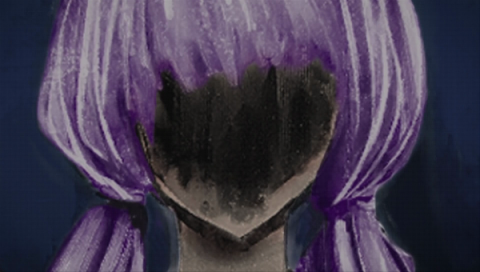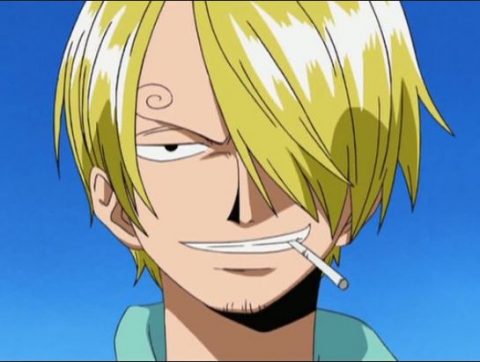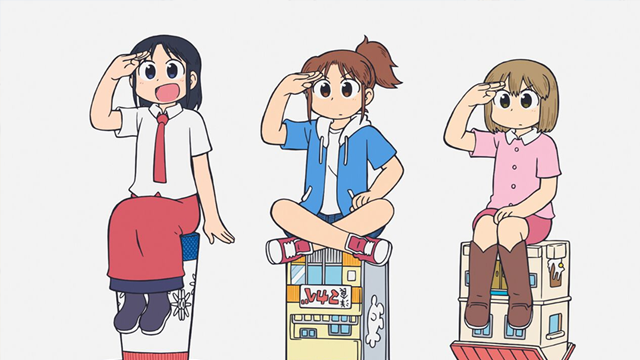
CITY THE ANIMATION is the TV anime adaptation of Keiichi Arawi’s manga CITY. It’s a show brimming with surreal humor hidden in everyday life and filled with quirky characters, giving rise to countless memorable quotes fans love to repeat. Notably, it’s Kyoto Animation’s first new TV series in about six years, pitched as a youthful everyday gag anime with the tagline “‘Fun’ is the password” and “laughs, love, and a bit of tear-jerking.” The official introduction even welcomes viewers with: “With plenty of laughs (pffft!), love (heart-melting moments♡), and a touch of poignancy – an unpredictable ordinary life woven by the residents! Welcome to CITY, where excitement is contagious.” True to this promise, the series is packed with gags yet carries a warm message at its core. In this article, we’ll dive deep into that world and the characters’ famous lines, giving fans a fresh perspective to enjoy the charm of CITY THE ANIMATION even more.
What Is Keiichi Arawi’s Worldview?
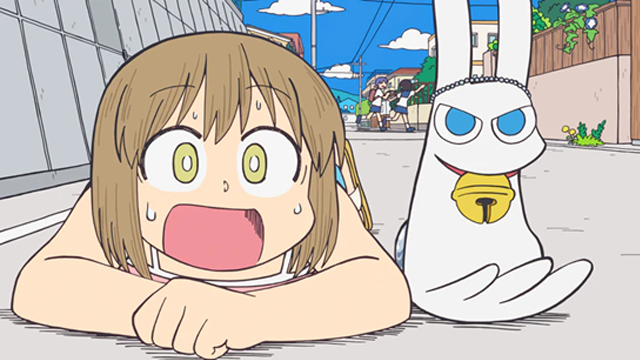
CITY THE ANIMATION fully showcases Keiichi Arawi’s unique worldview—the same offbeat style fans loved in Nichijou. There isn’t one grand story; instead, it’s structured as an omnibus of the daily lives of people living in the town called “City.” In theory it sounds like simple slice-of-life, but in reality it’s a nonstop parade of wild, unpredictable incidents sparked by the characters’ over-the-top personalities. What unfolds is a barrage of surreal gags where you truly never know what’s coming next. It’s the kind of nonsensical comedy—an “Arawi style” slapstick—that lets you turn off your brain and just laugh at the absurdity, yet beneath the silliness you can sense clever playfulness and even a bit of a message.
The anime’s director, Taichi Ishidate (known for directing Violet Evergarden), views the series as “comedy, not just gags.” Rather than inducing big belly laughs, the goal is to provoke chuckles that have a smart wit to them, aiming to “stimulate the viewer’s sensibilities.” Ishidate has said he wants the humor to feel intelligent within the goofiness. In Arawi’s works, the more you think about the jokes, the more layers of flavor you discover. In fact, when reading the CITY manga, Ishidate found that “the further I read, the more the humor and depth grew,” and he was impressed by how much the charm increased on reflection. This is the essence of Arawi’s world: seemingly random nonsense comedy that, upon a bit of thought, becomes even more enjoyable.
Similarities and Differences with Nichijou
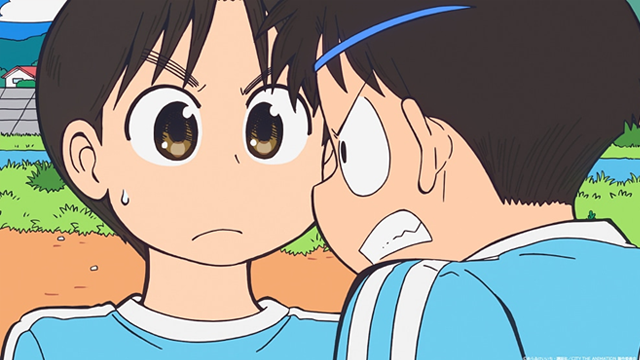
CITY is often compared to Keiichi Arawi’s other famous work, Nichijou. In fact, the show includes a few playful nods suggesting the two series might share the same universe. For example, the wraparound band on volume 1 of the CITY manga proclaimed, “The latest from Keiichi Arawi of ‘Nichijou.’ This CITY’s everyday life is connected by her,” accompanied by an illustration of Nichijou’s protagonist Yūko Aioi handing off a baton to CITY’s heroine Midori Nagumo. In the anime, Episode 2 features a teacher named Daisuke Naganohara, hinting at a connection to Nichijou’s Mio Naganohara (who aspired to be a manga artist). This little Easter egg set fans abuzz, with some wondering, “Are these stories unfolding in the same world?” The show is peppered with these fun crossovers in the details.
In terms of common ground, both Nichijou and CITY find comedy in the “nothing-special everyday” setting, and both rely on the characters’ extreme reactions and relationships to generate laughs. The difference is in scope and cast. Nichijou centered on a high school and a relatively small group of characters, whereas CITY widens the lens to an entire town—mixing in college students, shopkeepers, random residents of all ages. The scale of the craziness is a notch broader. In Nichijou, Yūko and a few others felt like the leads; in CITY, you could say the whole town is the protagonist. In fact, director Ishidate said when he first read the manga, “I realized the protagonist of this story is the City itself… and I was blown away.” In CITY THE ANIMATION, the entire community gets swept up in the madness, and the very setting “City” creates the drama—something delightfully unique.
Also, because CITY’s characters are slightly older on average (college-age and up), the humor sometimes hits closer to real adult life. You get gags about part-time jobs, being broke, dealing with landlords—more down-to-earth troubles that older viewers can relate to. For instance, protagonist Midori Nagumo is perpetually penniless, always behind on rent, and resorts to ridiculous schemes to scrape up cash, which inevitably lead to chaos. That touch of real-life problems adds a layer of “I’ve been there” comedy that sets CITY apart from Nichijou. The struggles are absurd but also oddly relatable, giving adults in the audience an extra reason to grin.
Collaboration with Tatsuya Ishihara and the KyoAni Team
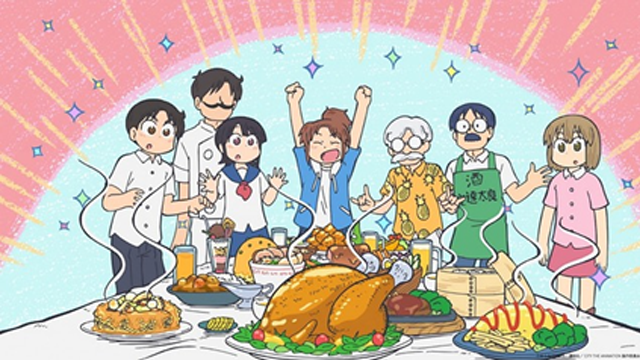
The announcement that Kyoto Animation (KyoAni) would produce CITY THE ANIMATION caused a huge stir among fans. It marks KyoAni’s first new TV series in roughly six years, and combined with Arawi-sensei’s involvement (after Nichijou), fans were ecstatic. Many shouted that the KyoAni × Arawi tag-team would be unbeatable. The project also reunites talent from the Nichijou days: director Taichi Ishidate, who back in 2011 served as an assistant director under Tatsuya Ishihara for KyoAni’s Nichijou, now takes the helm as the director of CITY. Talk about coming full circle!
Kyoto Animation’s signature meticulous artwork and direction shine in this series as well. The adaptation is so faithful to the manga’s style that people have said it feels like “the manga has literally started moving.” The production staff approached the project eager “to surprise Arawi-sensei,” even considering some new experimental touches for backgrounds at first. Ultimately, however, they decided to go all-in on recreating Arawi’s world as closely as possible — “Let’s just make it like the manga!” became the guiding principle. They even set detailed rules for the visuals, like using finer linework for backgrounds than for characters, to preserve the manga’s look. They obsessed over details so subtle that viewers might not consciously notice, all in service of capturing the original’s essence. This blend of KyoAni’s artisan craft and the staff’s respect for the source material elevates the show’s quality to another level.
The voice cast is packed with familiar talents from KyoAni’s roster. Mikako Komatsu (as Midori Nagumo), Aki Toyosaki (as Niikura), and Yui Ishikawa (as Wako) play off each other with perfect comedic timing. Notably, Aki Toyosaki had appeared in KyoAni’s K-On! and was thrilled to finally land a main role in a KyoAni×Arawi project. She even said, “As a fan, I was so excited to see KyoAni and Arawi-sensei team up again.” The audio side is in good hands too, with veteran sound director Yōta Tsuruoka (famous for The Melancholy of Haruhi Suzumiya, etc.) on board. From the precise comedic sound effects to a playful musical score, every aspect shows that classic Kyoto Animation attention to detail. The entire staff and cast united with the mantra of chasing “fun,” and it really shows in the final product.
Main Characters of CITY THE ANIMATION and Their Best Quotes
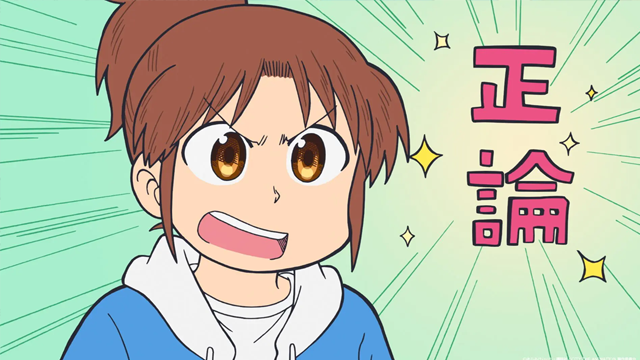
CITY THE ANIMATION features a large ensemble of characters, but front and center are a few key players whose interactions fuel the story. Let’s look at the main trio — Midori Nagumo, Niikura, and Izumi Wako — three college girls, as well as some of the colorful folks around them, and highlight what makes them (and their quotes) so memorable. Each character is bursting with personality; they might be absurd and outrageous, but they’re all so loveable that you just can’t hate them.
Wako-chan’s Quotes: Finding Fun in Absolutely Everything
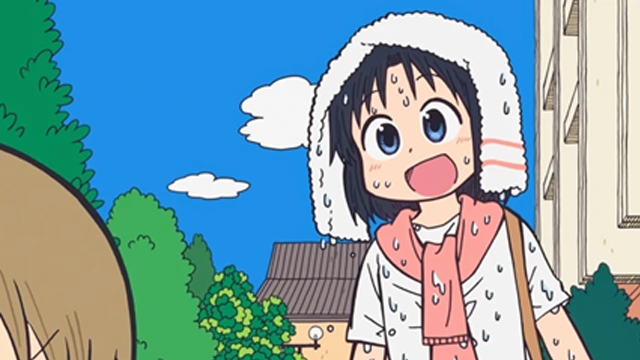
Izumi Wako (affectionately called Wako-chan) is a 20-year-old college student living in apartment 204 of the Mokumesei-sō building. She’s one of the three musketeers hanging out with Nagumo and Niikura. Wako-chan is perpetually smiling, easygoing, and marches to her own drum. Even when chaos erupts around her, she alone stays serenely unbothered. She’s a bit of a mysterious free spirit: for example, she carries around a small black plush that she worships as her “god,” and her bag is always stuffed with odd knick-knacks reflecting her bizarre hobbies. You never quite know what she’s thinking due to her whimsical, airheaded behavior, but deep down she’s incredibly pure-hearted and positive.
Wako-chan’s charm is perfectly summed up by her outlook that “everything is packed with fun.” No matter what’s happening, she’ll find something amusing or joyful in it—negativity just isn’t in her vocabulary. While Nagumo and Niikura might be freaking out or causing a ruckus, Wako is often seen just watching them with a carefree grin and laughing, “Ahaha, this is hilarious!” It’s like she’s enjoying even the pandemonium unfolding around her. Voice actress Yui Ishikawa described Wako as “a person who knows herself and never wavers. Even when Nagumo and Niikura are losing it, Wako stays firmly in the middle, unfazed, which makes her oddly reliable.” Honestly, if everyone in the world were as pure and positive as Wako-chan, we’d probably have world peace. She’s a fountain of feel-good quotes and vibes.
One standout Wako moment is when she watches Nagumo and Niikura in the middle of one of their crazy antics and just cheerfully murmurs, “This is fun, isn’t it~!” with an innocent smile. Wako’s ability to derive enjoyment from even the smallest things really embodies CITY’s theme of finding joy in everyday life. In many ways, Wako herself is the heart of the show. Through her words and actions, viewers can’t help but pick up on that perspective — a little hint that maybe we can find fun in our own daily shenanigans, too.
A Duo (and More) with a Full-Throttle Sports Club Vibe
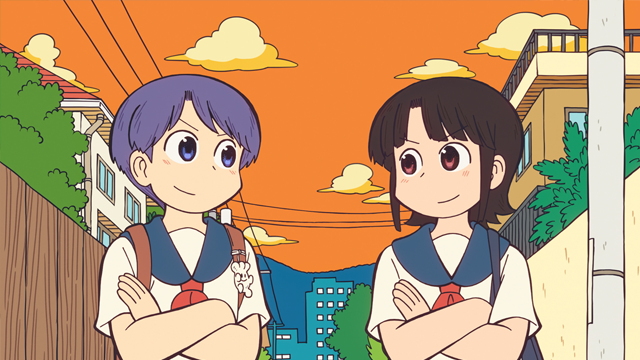
Midori Nagumo (20) and Niikura (18) are roommates at the Mokumesei apartment, a senior-and-junior pair who have incredible chemistry. Nagumo is a former local legend of Tokisadame East High School (yup, the same school from Nichijou), a girl with crazy athletic skills but zero motivation and constant money troubles – quite the walking contradiction. Niikura, who back in high school idolized her upperclassman Nagumo, is now basically Nagumo’s partner-in-crime (or voice of reason) who delivers snappy comebacks to Nagumo’s harebrained schemes. When these two team up, you get a high-energy slapstick tornado. Their antics escalate to the point that Niikura’s “straight man” act often turns into literal tussling – think pro-wrestling moves as forms of comedic punishment!
There’s a fun fact that during recording sessions, the cast approached it with a “let’s break a sweat!” sports team mentality. According to Aki Toyosaki (Niikura’s voice actress), the sound director encouraged them to “feel free to go all-out”. In particular, for Niikura’s role, Toyosaki was told that Niikura’s style of humor is one where “the harder she tries to rein things in, the funnier it gets.” In other words, Niikura isn’t trying to crack jokes; it’s her frantic, full-throttle reactions that make us laugh. Toyosaki herself said she gave it 110%, to the point of running out of breath as she yelled and retorted, and “everyone in the studio was sweating like we were in a sports club!” That dedication paid off, because the on-screen banter between Nagumo and Niikura comes across as explosively funny and full of momentum.
In the anime, whenever Nagumo spouts some nonsense, Niikura is right there with a homemade paper fan to smack her with a “KO-RRAAA!” (like “Heeey, knock it off!”) as a comedic rebuke. Sometimes Nagumo even puts Niikura in a wrestling hold as payback. Their interactions honestly feel like a hyperactive after-school club skit, complete with (metaphorical) sweat and tears (of laughter). Thankfully, Wako is usually off to the side giggling “This is so amusing!” at their fights, which keeps the mood light so it never turns into genuine conflict—just good comedy. And it’s not just them; other characters join the fray with similar gusto. For example, Nagumo’s landlady, the elderly Obaba (who is actually the grandmother of their friend Matsuri Tachiwaki), can suddenly burst out with superhuman athleticism to chase Nagumo down for late rent, like something straight out of a sports anime training montage. Every character in CITY gives their all in these over-the-top boke and tsukkomi routines (goofy antics and comic retorts), creating a certain sweaty, youthful energy in the comedy.
In CITY THE ANIMATION, literally everyone is the star of their own gag. Each pairing or group clash spawns its own quotable lines and hilarious scenes, pumping life into the show and making viewers think, “Man, goofing off with your friends like that is the best!” The athletic, high-spirited vibe of Nagumo and Niikura’s comedy duo is a prime example of what makes this series so fun and lovable.Standout Quotes from CITY THE ANIMATION
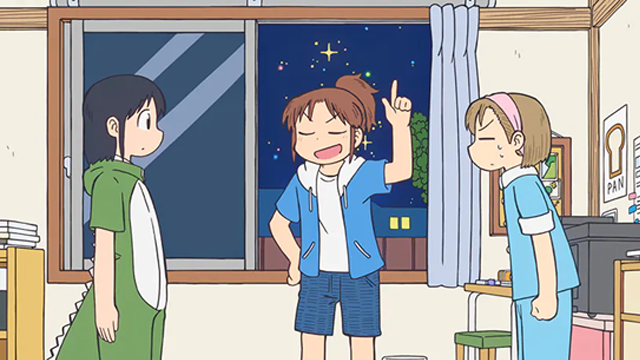
Now let’s highlight some of the most iconic lines and moments from CITY THE ANIMATION. From absurd one-liners that will have you in stitches to surprisingly touching words that make you go “aww,” here are a few choice quotes and the context behind them. Knowing these will let you appreciate the show’s humor and heart on an even deeper level!
Side-Splitting Gag Lines and Their Context
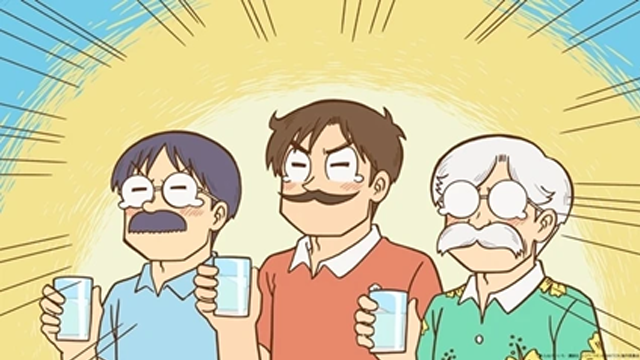
- “If you’re gonna do it, might as well pick the most fun option!” – In Episode 1, our protagonist Midori Nagumo delivers this line, which pretty much sums up the entire spirit of the show. If you’re going to take action, why settle for something boring when you could choose the thing that’s the most fun? This line perfectly captures Nagumo’s almost greedy enthusiasm for enjoyment, and it’s a moment that makes the audience chuckle and nod in agreement. According to the director, this quote of Nagumo’s is essentially the concept of CITY itself. He even told the cast, “This phrase represents what CITY is all about.” Right after declaring this, Nagumo comically laments, “There are way too many fun things to pick from, I can’t decide!” – a very her kind of problem, and a great introduction to her character’s priorities.
- “The more furiously you throw yourself into the retort, the more comedic it ends up.” – This isn’t a direct in-episode quote, but rather insight from Aki Toyosaki (Niikura’s voice actress) about what makes Niikura’s style of humor tick. Niikura spends a lot of time being dragged around by Nagumo’s crazy ideas, frantically trying to play the straight man and rein things in. It often leaves her exhausted and exasperated. The comedy gold, though, comes from how hard Niikura reacts. In the show, there are scenes where Niikura, gasping for air, is half-crying, half-laughing as she yells, “Nagumo-san, give me a break alreeeady…!” Her over-the-top desperation is so intense that you can’t help but laugh at her plight. She isn’t actively trying to be funny; she’s dead serious – and that earnest, almost futile resistance is exactly why it’s hilarious. This little “quote” from Toyosaki perfectly describes Niikura’s comedic charm: we’re essentially laughing at how hard she’s struggling.
- “Kapooon….” – Imagine two characters sitting in tense silence, neither saying a word. This happens in a scene between the manga artist Onikamaboko and his editor Todoroki. The awkward silence stretches on and on, and just when you’re wondering how long they can keep this up, the only sound you hear is the “kapoon” of a shishi-odoshi (those little bamboo water fountains in Japanese gardens that clack when they tilt). This little sound effect steals the scene! It’s not a spoken line in the usual sense, but it became a legendary moment of comedic timing in the show. The stark contrast between the super intense, nerve-wracking silence of the two men and the absurdly calm “clonk… kapoon” of the garden fountain is pure surreal humor. You’re left holding your breath waiting for someone to speak, and instead a random water fixture says “kapoon.” It’s so unexpected and silly that you can’t help bursting out laughing. Aki Toyosaki even praised this scene, calling it an “artistic use of silence” that she loved. It’s a gag that shows how even sound design and awkward pauses can deliver a punchline in animation.
Aside from the examples above, CITY THE ANIMATION is chock-full of laugh-out-loud lines. For instance, when Nagumo’s fearsome landlady (Obaba) shows up to collect the overdue rent, Nagumo falls to her knees and wails, “Eeeek! Please have mercy, Obaba-sama!” – a pathetic plea that never fails to crack up the audience. There’s also Nagumo’s part-time job boss, Makabe Tsurubishi, who loves to dramatically proclaim, “It’s a Western restaurant, but we boil soba too!” (a completely random flex that makes zero sense, which is exactly why it’s funny). These off-kilter one-liners pop out of nowhere thanks to the characters’ overly serious delivery, and they end up etched in our minds as unforgettable quotes. CITY’s characters are so earnest even when they’re saying the goofiest things, and that contrast is the secret sauce that keeps us laughing and quoting along.
Heartwarming Messages Hidden in the Comedy
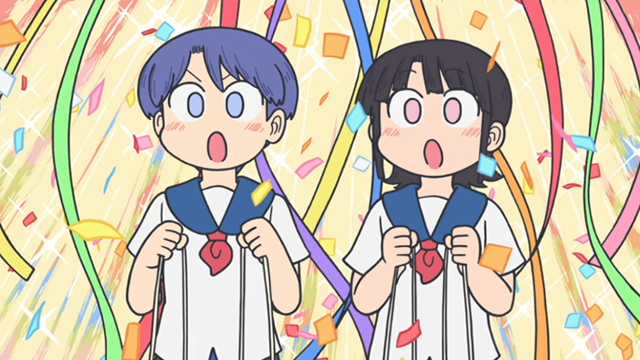
At first glance, CITY THE ANIMATION might seem like it’s all about the gags and laughs. But if you listen to some of the standout quotes, you’ll catch glimpses of the series’ underlying messages and heart. Interestingly, before voice recording began, director Ishidate told the cast two key themes: “The keyword is ‘fun,’” and “The residents of City live with kindness.” Aki Toyosaki recalled that hearing those words made her determined to carry that feeling of “fun and kindness” through every episode. In other words, beneath the slapstick and surreal jokes, this show carries a warm message: find the fun in everyday life, and live with kindness towards others.
Take Nagumo’s motto, “If you’re gonna do it, pick the most fun option!” Sure, on the surface it sounds like something a carefree, fun-loving person like her would say while goofing off. But flip it around and it’s actually a positive life philosophy: life is short, so why not seek out the joy in it? It’s an encouragement to prioritize happiness. Moreover, despite Nagumo’s mischievous, self-centered demeanor, she actually cares a lot about her friends and can’t ignore someone in trouble. In the latter half of the story, we see some unexpected friendships and acts of helping each other. In one episode, a character casually says something as simple as, “I’m glad you’re here,” and it hits surprisingly hard emotionally. These little sincere moments tucked between the jokes can catch you off guard in the best way, adding a layer of heartwarming depth to the show.
Wako-chan’s very existence also embodies the show’s message. As mentioned, she never negates anything or anyone — she finds “fun” and goodness in everything around her. She has this gentle positivity that seems to wrap around everyone else. Her words and actions constantly remind us that “the world is so full of fun things.” Watching Wako, you can’t help but feel a bit of that optimism rubbing off on you. Director Ishidate actually talked about the production process in a similar light: “We combined the ‘fun’ from everyone — the staff, the cast, music, sound… all these people’s ideas of fun — and the show’s world was big-hearted enough to embrace it all. In the end, any hardships were outweighed by how fun it was.” It’s clear that “fun” wasn’t just a theme; it was the guiding principle in making the anime. How fitting for a series where “Fun is the password.”
The memorable quotes of CITY THE ANIMATION remind us of some important things we might forget in our day-to-day grind: the importance of having a laugh, the joy of hanging out with friends, and the value of a little kindness. Underneath the gag-fest on the surface, there’s a gentle reminder to cherish those simple things. If you pay attention to those hidden messages amid the humor, you’ll find CITY THE ANIMATION isn’t just funny – it’s surprisingly heartwarming and enriching, too.
Conclusion: Everyday Laughter and Little Discoveries from CITY THE ANIMATION’s Quotes
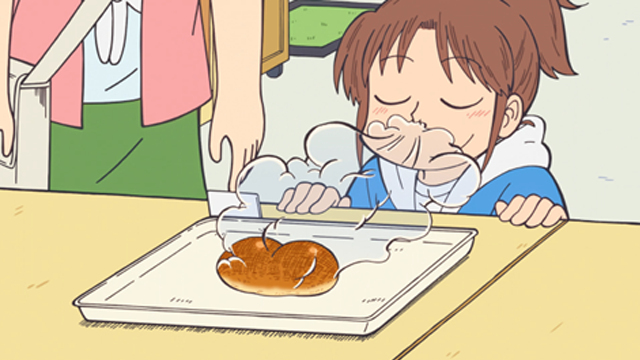
In the end, CITY THE ANIMATION is both a surreal gag comedy that’ll have you grinning ear to ear and a show that leaves a warm, glowing feeling in your heart after the laughs subside. From Midori Nagumo’s rallying cry of “If you’re gonna do it, might as well pick the most fun option!” to Wako-chan’s pure-hearted ability to find joy in everything, to Niikura’s over-the-top retorts that somehow make us laugh even harder – each character’s words and deeds give us little hints about how to enjoy life’s simple moments a bit more.
The CITY life depicted in the show – with laughs, a dash of love, and even some “aww” moments – isn’t some far-off fantasy world. It’s essentially a funhouse-mirror version of our own everyday lives. That’s why so many quotes from CITY THE ANIMATION hit home; they resonate with our real lives and make us think, “Maybe I can find something fun in today, too.” In fact, the mantra woven throughout the series is “Fun is the password.” As Nagumo, Wako, and friends teach us, no matter how ordinary a day might seem, there’s always a bit of humor or a small discovery hiding in it, waiting to be enjoyed.So, let’s take a moment to appreciate the world of CITY THE ANIMATION one more time. If you listen closely, you might almost hear the voices of those wacky yet endearing City residents echoing in your own daily life. And when you do, you’ll probably find your day becomes just a little more delightful and dear. Remember the key lessons from their quotes – keep “fun” at the forefront, be kind, embrace the silly – and carry them with you as you go about your routine. With these memorable lines etched in your heart, you’re all set to savor everything CITY THE ANIMATION has to offer, again and again. After all, as the show would remind you, there’s always an “absolute most fun option” out there waiting for you each day – go out and choose it!



